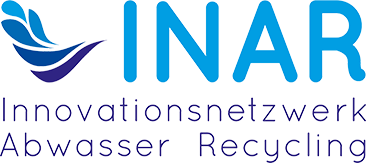The operation of a micro wastewater treatment plant (aus FR von DEEPL in EN übersetzt)
TECHNOLOGy
Cost-effective operation thanks to the fixed-bed process
Micro- and semi-collective wastewater treatment plants have to cope with large fluctuations in load and inflow. This requires a high degree of adaptability of the system in order to guarantee this optimum treatment quality. The operation of a micro plant with the fixed bed method accomplishes this task like no other. The principle of the fixed bed process of the micro plant ensures the efficient treatment of waste and sludge through the cultivation of bacteria naturally present in the effluent. The micro plant is the ideal solution for non collective sanitation and the treatment of sanitary and household waste, much more efficient and ecological compared to classical sanitation principles, such as septic tanks or all water tanks.
During the phases of under-loading, the micro-organisms that have colonised on the fixed bed become encapsulated, and are thus able to survive long periods of under-loading. The only requirement is the presence of a minimum of oxygen in the water. If there is no organic waste to be treated for a longer period of time, the system can be switched to “holiday mode”. In this way, the aeration of the fixed bed is greatly reduced, so that the system only consumes 10% of the electrical current. When the system returns to normal operation, the original purification capacity is reached within a few days due to the rapid reactivation of the bacteria.
In contrast to other operating methods such as the activated sludge process or the SBR method, fixed-bed systems do not require expensive separators and long sedimentation phases. This is because the micro-organisms that are separated during the secondary settling process break up into flakes with a high specific mass on the surface of the fixed bed, i.e. with a good sedimentation capacity. This results in an optimal separation performance in the secondary settling as well as a low solids content in the flow channel.
Another advantage of operating the treatment plant with the fixed bed method is that the wastewater can flow through the treatment plant gravitationally: there is no need for lifting pumps, electricity, complex
The fixed-bed process ensures the purification in the micro plant
The water treatment in three stages of the micro plant:
Stage 1: Mechanical pre-settlement
In the settling tank of the micro plant, suspended solids and precipitates are removed from the wastewater. Due to the low flow velocity in the settling tank, solids with a higher density than water settle out. The components of the effluent with a lower density float and are retained by submerged partitions. In order to achieve optimal settling, the settling tank consists of at least two compartments connected one after the other downstream.
Stage 2: Biological treatment of the micro plant
The pre-settled water flows by gravity from the settling tank to the compartment containing the submerged and aerated fixed bed. This provides the ideal conditions for the growth and colonisation of micro-organisms capable of biologically purifying the wastewater in the micro plant. The fixed bed consists of plastic elements with a large specific surface area. The oxygen required for the biological degradation processes through the microorganisms is introduced into the wastewater by means of membrane diffusers located below the submerged fixed bed. A compressor provides the air supply by drawing in outside air and returning it to the diffusers. The air escapes through small pores in the membrane of the diffusers and is distributed into the wastewater as fine air bubbles. As the air diffusion takes place at a relatively high depth, the degree of oxygen dilution in the water is optimal for the development of bacteria. Due to the shape and structure of the fixed bed material, the wastewater flows freely through the entire compartment, which guarantees optimal mixing with the air introduced. The micro-organisms required for the degradation of the water components already exist in the organic waste. Therefore, no culture activators or other additives are required for commissioning.
Step 3: Mechanical secondary settling
After passing through the biological stage, the wastewater passes through the secondary settling compartment where, by sedimentation, the treated wastewater is freed from the excess bacteria flakes that have broken off from the fixed bed.
The excess biomass settles to the bottom of the secondary settling tank and is periodically transported to the pre-settling tank where it is stored with the primary sludge until it is removed.



